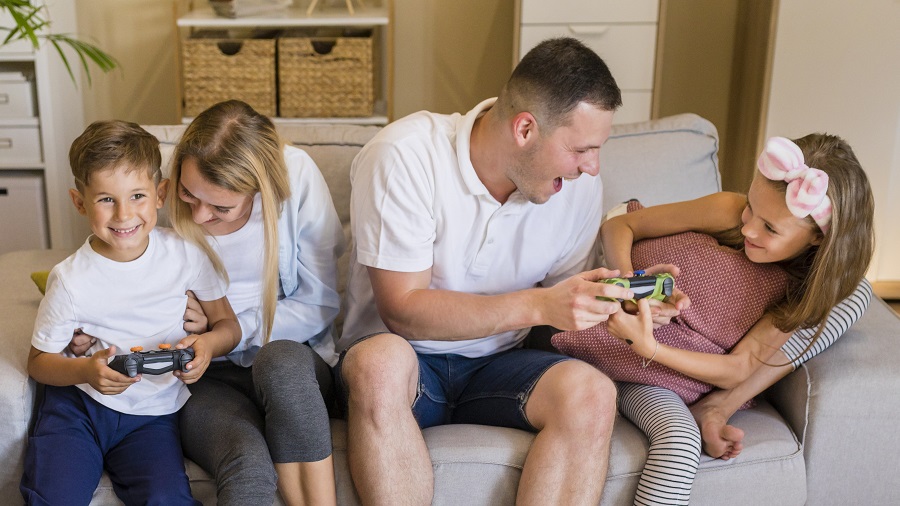Healthy Gaming Habits for Children and Families

When you think about video games in your household, you might wonder how to balance the fun with your children’s health and development. You’re not alone—many families face this challenge as gaming becomes part of everyday life. It’s important to look beyond the games themselves and focus on how you can guide your children toward healthier routines. Let’s consider what’s at stake and how your choices can make a lasting difference.
Understanding the Benefits and Risks of Video Games
Children's affinity for video games can be attributed to several factors that have implications for their well-being.
Engaging in video games can lead to positive outcomes such as enhanced response inhibition, improved working memory, and better problem-solving abilities.
Additionally, video games can serve as a tool for stress management and facilitate the formation of friendships through online interactions.
However, it's crucial to recognize the potential risks associated with excessive gaming, which may include addiction, mood alterations, and neglect of responsibilities.
Establishing guidelines for gaming and setting screen time limits are important measures, as the duration of play can significantly impact a child's development and health, either positively or negatively.
Setting Age-Appropriate Gaming Limits
Video games can provide educational and social benefits; however, it's crucial to establish age-appropriate gaming limits to ensure safe and balanced playtime for children.
According to the American Academy of Pediatrics, children under 18 months shouldn't be exposed to screen time.
For children aged 2 to 5 years, it's advised to restrict gaming to no more than one hour per day.
For those aged 6 and older, it's recommended to limit gaming to 60 minutes on school days and up to 2 hours on non-school days.
Implementing structured rules and consistent time limits can aid in fostering healthy habits, ensuring that gaming doesn't interfere with essential activities such as education, sleep, or personal development.
Encouraging Parental Involvement and Supervision
Parental involvement plays a significant role in shaping a child's gaming experience.
Engaging with your child during gaming can promote the development of healthy gaming habits.
It's important to ensure that the games your child engages with are age-appropriate. Resources such as Common Sense Media can assist in evaluating the suitability of games.
Positioning gaming consoles in shared spaces allows parents to monitor both the games being played and the individuals with whom their children are interacting.
Familiarizing yourself with your child's online friends and utilizing parental controls to manage chat features can contribute to creating a safer and more positive gaming environment.
These strategies are aimed at fostering responsible gaming behavior and ensuring a secure digital experience for children.
Promoting Balance With Healthy Snacks and Alternative Activities
Ensuring that gaming remains both enjoyable and health-conscious for children involves implementing practical strategies.
Stocking up on nutritious snacks, such as apples or low-sugar granola bars, can promote healthier eating habits during game time.
To mitigate the risk of prolonged sedentary behavior, setting an alarm every hour serves as a reminder for children to engage in stretches and take short breaks that include consuming healthy snacks.
It's advisable to limit the duration of gaming sessions by introducing hobbies to replace video games, such as outdoor play, reading, or participating in family board games.
These practices can contribute to a child's sense of achievement beyond digital screens, fostering balance and supporting their overall well-being through a variety of fulfilling and health-promoting experiences.
Establishing Safe and Social Gaming Practices
To ensure that your child’s gaming experience is both safe and social, it's important to implement a few key strategies.
Engaging in gaming activities together allows you to monitor the content and interactions within the games.
This involvement helps in guiding children towards developing healthy gaming habits and facilitates positive social interactions.
Positioning gaming devices in common areas of the home can help in supervising gaming activities and managing who your child is interacting with online.
It's advisable to establish explicit guidelines, such as allowing gameplay only with friends whom your child is equipped to interact with responsibly.
Educating children on how to mute or report inappropriate behavior from other players is crucial for maintaining a safe gaming environment.
This empowers them with a sense of control over their gaming experiences.
Conclusion
By taking an active role in your child’s gaming habits, you’ll make sure they reap the benefits while avoiding the risks. Set clear limits, join in when you can, and encourage a wide range of activities beyond screens. Don’t forget to prioritize healthy snacks and regular breaks. With your guidance, your family can enjoy a safe, balanced, and fun gaming environment that supports both your child’s development and your family’s well-being.
